Wednesday, July 12, 2023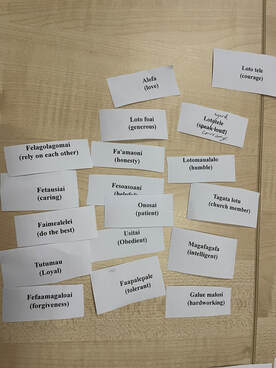 Example of a pilot pile sort. Example of a pilot pile sort. Last week, when I was first introduced to our translator-liaison Leota Sanele by Centre for Samoan Studies Samoan Language and Culture director Matiu Matavai Tautunu, Leota was told that we would like to go to Savai'i to collect data. Leota laughed and asked if we wanted to sleep like Samoans in the open fales, and we assured him we would. Leota had said to us that this past weekend would be too soon for us to go but that he would be going there to visit his family and would make arrangements. Leota has a home in Lalovaea with his wife, daughter, brother, sister, and cousins, but he is from the village of Gataivai in Savai'i and has a home there with his extended family. However, I did not want Leota to feel like we were foisting ourselves on his family, per se, so much as helping us get by in Samoa. As we were to learn, the ethos of hospitality and service is central to Samoan identity, though that doesn't mean it's not an imposition. Having a bunch of palagi (white people) descend on a family is as much trouble in rural Samoa as it would be in suburban Alabama, so my impulse was to find a hotel or AirBnB to stay in and only come in to conduct interviews if the village chiefs allow it. However, that is not the Samoan way, and I kind of already knew that but was unsure they would want to honor us in the customary way. I panic-booked an AirBnB just in case, and on Monday, Leota told me that the arrangements had been made for us to come for the weekend. This was wonderful, I said, and by the way, I booked an AirBnB because I don't want to be a burden. "The chiefs would like to welcome you with an 'ava ceremony and are prepared for you to stay with us." "I should probably cancel that AirBnB, shouldn't I? Yes, I am canceling that AirBnB." At this point, Leota and I were still getting to know each other, and there were language and cultural barriers. Mind you, Leota has more knowledge of my language and culture than I do of his, but we needed to learn about each other as individuals and our values. An 'ava ceremony is a special ritual reserved for VIPs, so we were being extended a great honor, but such honors entail gifts for the chiefs, the High Chief, the ministers, and the untitled men and women. They would be presenting the same for us. I have partly experienced preparation for one 'ava ceremony before (we prepared but did not ultimately receive the honor), and seen gifting around the sama ceremony after tatau, so I had some idea. Things and time cost, so I would need to reimburse the chiefs and the family in some form and be prepared to do so up front in ceremonial fashion. Leota would give me a budget later in the week, which was really a means of kicking the issue down the road for him. Leota did not know what I know, so he was justifiably concerned that I might fear they were trying to extract resources from palagi. This is the heritage of the colonial encounter after all. Furthermore, I should book our ferry right away, said Leota, since we would be taking our rental car over with us, so we did that on Monday (I forgot to mention that fascinating detail in the previous post), buying tickets to leave at one time on Friday and returning a different time on Monday. The date format is New Zealand style too, which causes me a little confusion sometimes. This is foreshadowing. On Wednesday, we met up with Leota to create our test pile and pilot the pile-sorting activity. After developing a set of bilingual cards with Leota, we walked him through the activity. The free-listing and pile-sorting methods were developed for research in cognitive anthropology. Terms elicited from cultural experts in the free-listing stage are sorted into categories based on how a person thinks about them in their minds. Leota is a linguist interested in Samoan folk knowledge, so this was inherently interesting to him. We found that he and many Samoans we interviewed enjoyed the activity and liked talking about how they organize Samoan concepts in their minds. We eliminated some redundant terms that we had not caught before, corrected our Samoan spellings, and ran another pile sort at Leota's request. One of the issues with the activity is that people may categorize things in their minds differently at different times and when they have different understandings. After the first time around, Leota thought he understood the purpose of the activity better and, reflecting on his initial piles, wanted to do it again. This desire to repeat the activity would take place several times in the field, though in some cases this may have been an innocent effort to earn another subject fee, which were all being donated to a church youth group. That evening, we finalized the card terms for Savai'i. These cards were not considered final at the time because we were still awaiting terms from our colleagues in American Samoa, but we received them by email while in Savai'i. We were able to quick check for any glaring terms that hadn't previously been mentioned and conducted a recount upon return from Savai'i. There were new terms, but their mention rates weren't high enough to be included in the final pile set. Thursday, July 13This was a glorious day (sarcasm) of catching up on other work on the computer that isn't worth taking photos of, such as filling out expense reports and stressing about our funds. We also did a little shopping for supplies and getting multiple sets of our cards made up so we could conduct multiple pile-sort interviews simultaneously. Grant also bought some Koko Samoa paste. Koko Samoa is ground cacao, mixed with something to form a paste. A tablespoon or so is mixed with hot water to make a beverage that is kind of chocolatey but also just a little oily. It's what many Samoans drink instead of coffee or tea as a stimulant, and Leota's family drink it with every meal. I've never made it myself, so Grant was interested in experimenting. I emailed Leota about the budget and finally got a quote of the amount of cash I would need to compensate the families for our accommodations, as Samoa is still a cash economy for the most part, and the only international ATMs are in downtown Apia. Getting large amounts of cash out of the ATM has to be planned for, as I have a UA purchasing card to use for research purchases, but it doesn't allow cash withdraws. So I have to make the maximum daily withdraws from my personal account, family account, and personal credit card to cover expenses, then quickly fill out an expense report to submit for reimbursement before it negatively impacts my family back home. Stupid nonsensical bureaucracy. Friday, July 14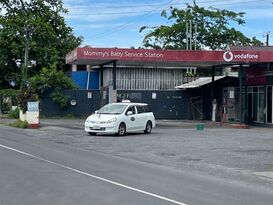 Mommy's Baby couldn't take care of us. (Photo taken March 2023) Mommy's Baby couldn't take care of us. (Photo taken March 2023) Friday was quite an experience. While I was packing up the car, Grant made the Koko Samoa. He didn't know how to make it so he looked it up on the internet. In retrospect, I think either the internet or Grant got the ratios wrong because, well, we'll get to that. Grant offered Josh and I some, but we weren't interested, so Grant drank the whole pot, reasoning to himself that he didn't want to waste it or leave the pot to mold while were were gone. I had told Leota that we had tickets for the 2pm ferry, which meant we needed to be there to board by 1pm because of the maneuvering it takes to squeeze as many cars into the ferry as possible. As a tulafale (talking chief), Leota was the orator on behalf of NUS as well and had a role in the commencement ceremony taking place Friday morning. He suggested we pick him up at noon, so he wouldn't have to leave his car at the ferry parking lot over the weekend. I was concerned that Leota had given us a low budget, so I wanted to go to the ATM again before we picked him up. Unfortunately, I chose a terrible time, as the ATMs are in the center of the business district, which is the most traffic-congested area. We also realized we were low on gas, so we tried to stop and get gas, but first I missed my turn, then found the station on the way to NUS temporarily closed, so we would have to get it on the way to the ferry, which is about an hour's drive from Apia. On the way to NUS, Leota had called to see where we were and suggested we meet him at the ferry because commencement traffic was so bad on campus that he was concerned we would be delayed getting to the ferry. However, I didn't hear my phone and called him when we got on campus to ask him if he could come to us, since we were stuck in a jam, at which point he relayed the suggestion. It cost us about 30 minutes getting onto and then back off of the campus, which meant we would have to drive like a Samoan taxi driver (weaving in and out like a bat out of hell regardless of speed limits or double-yellow lines) and didn't have time to stop at a gas station either. As we're hurtling toward the ferry, Grant suddenly says, "Guys, I'm not feeling well." And I ask with alarm, "Um, what do you mean you're not feeling?" I've just gotten to know Grant over the past few weeks, but he's the kind of person who likes to will himself to be fine and fight through things, not the kind to just casually mention that he's not feeling well. "It's the Koko Samoa. I feel like I might get sick." "Do I need to stop?" This sounds incredibly selfish of me. Of course I should stop. On the other hand, Grant is the type of person who would almost rather die than be the weak link, so he literally might not want us to and have other plans. "No, I'm gonna hold it in. I refuse to be sick." As we approach the airport, which is about 5 or 10 minutes before you get to the ferry, I pull out the ferry tickets to have them ready and look again at the dates and times. And what do you know? I have flip-flopped the departure and return times in my head and not doublechecked myself before making plans. Our tickets were actually for the 12pm departure, and we should have been here by 11am. Our collective stomachs drop. 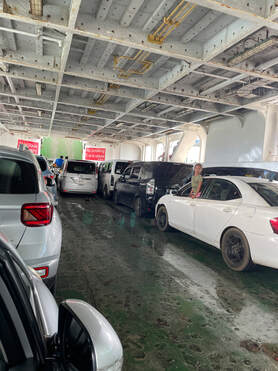 They'll fit about six more cars in here with us. They'll fit about six more cars in here with us. We pulled up to the lot where cars park to await the ferry, and I told the guys checking tickets my problem. I tried to supplicate myself as a dumb palagi (true) who gets confused by the day-month-year format (also true) and got the days and times reversed in my mind (sigh, true), and the guy said, "OK, that's cool, you can go ahead and get in line for the ferry there." We breathed out, thanked whoever each of us thanks, and pulled the car up. I was shaking from the blood sugar crash that comes after acute stress. Then the same guy comes up to my window and says, "Your ticket is for 12. You were supposed to be here at 11." "Yes, " I said, "I just said that, and you said to pull up here." "Ohhh, you'll have to go on standby," responded the agent. "You'll probably get on today." "Probably? Today?" I supplicated myself. "There are...five cars ahead of you, so maybe the next one even, but probably today. You'll have to pay a ticket change fee though," the agent assured me. "How much is that?" I asked "$40 tala plus surcharge," he said apologetically. That's around $15 USD, so not much for such a dumb mistake on my part in my opinion. According to Samoans we interviewed, part of the Samoan ethos of service is to be agreeable. Agreeableness is a critical mode of interaction between superiors and subordinates in Samoan society, but it is not always immediately clear when meeting strangers who is higher and lower status. Being generally agreeable to strangers is a way of hedging bets and ensuring no social boundaries are violated, especially on a small island where everyone is somehow related. But I think it's also sometimes true when Samoans address foreigners, whose statuses relative to their hierarchical society is harder to discern. I think what at first seemed a bizarre misunderstanding--the indignant voice in my head wondered if this person was not actually listening to me--was a manifestation of this Samoan impulse to be agreeable. Or I may have just talked quickly and nervously in my American accent, and he didn't understand anything I said, waving me forward when he saw my ticket and only noted the time was wrong when he took our names and went to check us in... Leota arrived and found us in the standby lot. I told him what happened and could see the concern on his face. The 'ava ceremony that was planned for us was a big deal, and he worried about upsetting the chiefs by keeping them waiting. At first he suggested that I come ahead with him and leave Josh and Grant to bring the car over (you can get a ferry ticket without a car easily and on-site without reservations). "But what if they don't get on. I can't leave them here." He agreed. Leota decided he would go ahead and tell the chiefs about the delay. If we got on the 2nd ferry, we could still conceivably get to the 'ava ceremony just in time for it to start but without any time ahead of time to settle in. Under the circumstances, I considered that quite a relief. We could adjust to that, but what we wanted to avoid doing is giving the chiefs the impression that we were not honored or that we did not take it seriously enough to make sure we had our arrangements straight. Leota went ahead on the 2pm ferry. Grant wandered off to get air. Josh went to the snack bars to find lunch. I also grabbed a snack--a nourishing bag of chicken Bongos and a refreshing bottle of Coke--and returned to sit in the hot car just in case something happened involving our chances of getting on the 2pm ferry. We had the hour to wait while the ferry was loaded with ticketed passengers and could not even make use of the time to get gas, so we were going to have to get gas on the other side. There were not many gas stations in Savai'i according to Google Maps, and the few were near the ferry, so we gambled they would be open when we eventually got over. When the last scheduled car went aboard, they started slowly bringing standby cars on one by one, slowly maneuvering each into a crevice before bringing the next on. The four cars in the front row went one by one, then the car next to us was put on. Then, they waived us over. "We're going to get on?" "Yes," said the agent. I handed my money and tickets. "What about theirs?" the agent asked me about Josh and Grant. I collected it and stuck my hand out the window, but the agent had stepped away. A guy loading the cars had just given the "cut" signal. My hand was still sticking out the window with money and tickets. "Ohhh, sorry, no more. You'll be first on the next one." So I got my money and ticket back and backed the car back into standby line. We got on the 4pm ferry, as Leota had anticipated. The cars were packed so closely together that doors could not be opened. Grant climbed out the window at one point to find a restroom and explore. I hunkered down for the hour and took a little powernap to prepare for the rest of our evening. 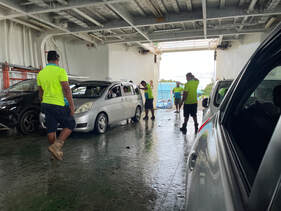 Ferry to Savai'i Ferry to Savai'i When we rolled off on the other side, we were a little bewildered. It was a much smaller lot, and we rolled quickly out of the lot and onto the main street, where we saw Leota driving a van with an older man in the passenger seat. I got out and went to greet them. "This is the High Chief," Leota introduces me. I am startled but greet him graciously. I did not expect to meet the High Chief until the 'ava ceremony, but here he is in the van with Leota drinking a beer. I found it disarming. However, the ride, nap, surprise, relief, whatever had washed the need to get gas from our minds until we passed the gas station. We looked at our gas gauge. It still had two bars. It had had two bars all day. The first tank had lasted a long time, so we agreed that two bars would be fine until we could get back to these gas stations tomorrow. Five minutes later, I hear a "ding" and look down. We had zero bars, and the "empty" light was flashing. Our stomachs were back in our mouths. I called Leota. and babbled in panic about how the bars had been this and that and how far was it to a petrol station? This is not what we call them in the U.S., but the ones we'd pass all say "petrol" on the signs, and the colonial heritage in Samoa tends to be primarily New Zealand (British Empire) and German. By contrast, the colonial heritage in American Samoa is primarily US and some British. "You need gas?" Leota clarifies. I stop babbling. "Yes." "There's no more gas stations to the other side of the island." This is no longer true, but even Leota did not know this, as several have popped up along the road beyond his village in the past few months. "We're almost to the village. You will make it." "Oh, okay," I say. The reality, as Leota and I discussed later, is that we were still struggling to understand each other, as Samoan is his first language and American-English is mine. Samoans from Samoa tend to speak English with New Zealand accents, and Samoans from American Samoa speak English with American accents. This is pretty intuitive, I know. But Leota is a linguist, and words are important to him, and he was wondering if stereotypes about Americans were true. We don't all fit the American stereotypes, but they have been earned by Americans as a culture. Leota was wondering if we would behave like entitled palagi from one of the current hegemon cultures of the world--would we be offensive and offended? During this phone interaction, I was making things tense because he couldn't understand a damn bit of what I said and worried I was having some weird palagi overreaction to needing to get gas when clearly the goal was to get the High Chief straight and directly to the 'ava ceremony. So on we drove. "Almost" was about 45 minutes, but we had to make a stop at a local store as we approached to buy the 'ava, which comes in 1 lb. bags for about $10 Samoan tala or ~$4 USD. I turned off the car to save any fumes we had left and prayed it would start again to finish the trip. It did. We arrived at the village without running out of gas! We are overcoming challenges today by dumb luck. We are shown into the bathrooms to change. One is in a partly enclosed fale with its own toilet stall and shower constructed for a family member who had grown up in an enclosed American-style home in American Samoa but now lives here in Savai'i. The other bathroom stands alone behind a few fale. All the land is owned by families organized in villages, and they build fale for family members to live in where the extended family as represented by the chiefs have agreed it's okay for a family member to live. Each family is expected to work the plantations on the land, and the families all live communally in mostly open fale and share in the work and rewards. I'd had the boys buy new ie faitaga, the tailored style of lavalava with pockets and straps worn for more formal contexts like church and work, and I'd brought mine. However, I hadn't put an ie faitaga on in several years, have only worn it a few times to begin with, and have never put one on in a dark bathroom with an anxious Samoan linguist waiting for us to join the chiefs, who were already gathered in the fale tele. Fale tele are the large fale in the malae or gathering square in front of several houses in all Samoan villages. The presence of these fale tele signify hospitality, welcome, and love, which are the highest values of Samoan beliefs and folklore, according to Leota, who is a Samoan folklorist as well as linguist. We struggled poorly into our ie, but it was good enough. Leota met us before we went in and was anxious. The 'ava ceremony is a special event that does not happen very often and is done for important dignitaries. Many chiefs want to meet the dignitaries, and so there were more chiefs in attendance than Leota had anticipated who we would need to provide gifts of respect for. This was literally the only possible crisis I'd been sage enough to plan for and handed him the cash. He would be in charge of distributing gifts during the oration as our representative. His relief was palpable. We were seated in the fale against one side with me in the middle and Josh and Grant and either side of me. I was the guest of honor. My status there is based on my academic credentials as a full professor from US university, and so I would sit against the center pole. I forgot to tell Josh and Grant to sit against poles, so they were simply to my right and left until they were told later to use the pole during ceremonies. They were being honored as titled guests because they were my assistants, whereas Samoan assistants would be the untitled people outside the fale and carrying items between chiefs and guests. Most of the chiefs sat across and to the left of us. The High Chief and Leota sat along the right side. The untitled men assisting were just inside the entrance to the left side, and the untitled and titled women were outside the fale taking photos on their iPhones (fortunately--thank you, Tala!). We all sat cross-legged on the floor. Leota was our orator, so he spoke for us and translated, though most of the chiefs also spoke varying degrees of English. The orations are formal actions of the 'ava ceremony, and we sat as centerpieces and essentially took it in. A staff of 'ava was brought to each of us as a symbolic gift as Leota told the story of 'ava, which he related to us later in English. 'ava or kava is Piper methysticum, a bush that only grows in the South Pacific. Throughout those Pacific cultures, kava root is ground into powder and strained through water. It gives a mild analgesic effect and pharmacologically is a GABA agonist. It tastes like dirt, so the convention is to drink it down in a single swallow a shell (half coconut) at a time. Kava bars have popped up in cosmopolitan places around the world that gussy up the tastes sometimes while retaining some of the Pacific trappings. I actually like to drink kava at work to help me focus while staying hydrated. In Samoa, 'ava is used ceremonially, but it is also like beer for them. As Leota says, before they had alcohol (I find it surprising that the peoples who settled Polynesia didn't have fermentation technology), they had kava, and one sees men gathered around 'ava bowls at markets like one would see men doing with alcohol in other locations and cultures. After Leota and the chiefs tell the 'ava story and thank us for coming, I give an impromptu speech on behalf of the three of us thanking them that Leota translates for the chiefs. Then they begin bringing us food. In Samoa, the highest status people eat first. In families, children serve the adults and only eat when the adults finish. When chiefs gather, they are served first, and untitled people eat when the titled people have finished. Thus, we were served with the chiefs, while Leota (who is titled but serving us as a gesture of hospitality) and the untitled men and women brought us food. And they started with cocoa Samoa. I heard Grant groan. The food they brought us was magnificent, and there was so much! There was a whole fish, a quarter chicken, coconut soup, a bowl of caper-like seaweed, yam, niu (baby coconut opened for coconut water), and a never-ending cup of Koko Samoa. And warm Taula, the local beer. This was our contribution to the party. As we leaned over our knees to pick up our food, the High Chief took pity on us and instructed the untitled villagers to bring chairs and tables in for us to sit on because palagi aren't used to sitting on the floor for long periods of time. He laughed. He was not wrong. My hips and knees scream after 10-15 minutes in that position. As we ate, the untitled men and women were watching us. No sooner did we put a morsel of food in our mouths than they swooped in and presented the serving dish to offer us more. I love eating and especially love eating new food, but I was quickly full and had been feeling nauseous on much of our trip, so I could not finish the first round and had to beg off offers of more. Grant however reminds me of a younger version of myself and likes to prove himself by doing more and better than people might expect from an average-looking white dude, and he took it on as his personal duty to make us look good as palagi who could hang with the perceived Samoan diet. And if it weren't for the Koko Samoa that Grant poisoned himself with that morning and the warm beer we'd contributed. We were sitting on chairs to the side now, not directly facing the chiefs. Instead, we were sort of facing the High Chief and Leota but more to one side and not in direct view. The High Chief smoked hand-rolled cigarettes and Leota sat there talking with the chiefs and still not eating, since he was acting as our servant. Grant took a drink of beer, which he wasn't a big fan of to begin with because of the way it foams up in one's stomach. And it had foamed up in his stomach and come right back up his throat. And suddenly Grant vomits across the table in front of us and on his own and Josh's ie faitaga. I scooted away just in time as I saw it out of the corner of my eye. Leota noticed something had happened but not what, and I was able to tell him that Grant was sick without attracting any attention. Leota called the untitled women over, who took Grant and Josh to bathrooms to wash up. Josh was back quickly while Grant took longer. We felt terrible for poor Grant and whispered to Leota what had happened with the Koko Samoa that morning. He assured us that the 'ava ceremony was over and the chiefs had not been paying attention to us. When Grant returned, he was embarrassed and upset with himself for not willing himself to not become sick. We assured him that no one seemed to notice, and truly, it seemed that even the untitled men and women did not realize why Grant and Josh had been ushered to the bathroom. Perhaps they thought they'd spilled something or wanted to wash up in the traditional American style, rather than use the bowls of water brought for us to rinse our hands in after eating. We could tell when we later stripped the coverings from the pillows on the chairs and table covering to be washed. They were mystified as to why until we said that someone had been sick. The family left the table and chairs in the fale tele, as that was also where we were to sleep at night. The High Chief had given us permission to sleep there and to do so with wearing lavalava, which are otherwise required in this sacred space. We were set up to sleep uncomfortably close to the table and chairs where Grant had vomited, so I selfishly made Grant take the side nearest the table and slept closer to the middle. Our bedding was the pandanus leaf mats on the concrete floor and two pillows and a sheet apiece. They set up citronella incense spiral burners to keep away the mosquitos, and brought us an extension cord so we could charge our phones. 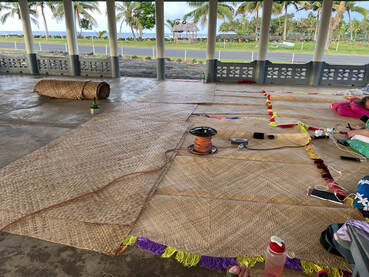 Our space in the fale tele Our space in the fale tele Several village dogs adopted us. The animals and people have interesting relationships. The animals wander freely and have clear roles, but they're not really treated like pets or farm animals. Dogs run around and protect each family's area from the usual passersby, as well as keeping the pigs from getting into things they shouldn't. But even the puppies don't get named and played with by the kids. They seemed amused that we kept putting our hands out to befriend the dogs. Nevertheless, the dogs protected us in the fale tele. Lucky us. They barked at people passing by on the road throughout the night, and at one point they protected us from what sounded like a roving gang of other dogs based on the chaos of their very loud fighting. Leota was also sleeping with us it turned out and had a cell phone that chirped notifications all night. Grant ended up getting a headache and could not sleep. I slept OK for being on the ground but awakened frequently throughout the night. At one point I noticed that Grant was not laying down and had not been for a while. He'd paced the fale tele for a while, then gotten into the car to sit in a different posture and ease the tension to his head to get rid of his headache. As soon as the sun rose, those of us who had slept awakened. That wouldn't be the case every morning, but it was that first morning. Sitting up, we could see everyone in the nearby community was rising. Twenty feet away on most sides of the fale tele was family fale full of people coming to life--five in this one, twenty in that one, three in another. No walls, no rooms, not much in the way of dividers. No kitchens. We could see our neighbors sitting on the floor looking at their iPhones, while we saw others preparing us breakfast. Starting with Koko Samoa. Actually, we still had Koko leftover from the previous night, and Koko Samoa may be like coffee for Samoans but not for me. I like Koko Samoa and drank it every time it was offered, but I've got a coffee addiction and get a headache if I don't get a certain amount a day. I travel with instant coffee singles just in case, so I'd grabbed a few of them to mix in for Josh and I.
"None?! Oh, i just thought you would need to get gas before we drive around today. You won't make it to the ferry."
What could we do? Leota will have to call the High Chief and borrow his van again to go and get us gas. We cringe that we have imposed another problem on them, but Leota and his cousin fetch the van and return with a big plastic container of gas. Several tubes and hoses are found until we get one to work as a siphon and fill up the car. We have made it to Savai'i, gone through the 'ava ceremony, eaten gluttonously and lost our lunch (not for the last time), kind of gotten a night's sleep, eaten again, and gotten our car back in action. Now it was time to start the day, with a tour of the island.
1 Comment
6/26/2024 01:12:43 am
Great website you have here. It's hard to find high-quality writing like yours these days. Thank you for your articles. I find them very helpful. I really appreciate people like you! Take care and have a great day ahead!!
Reply
Leave a Reply. |
Christopher D. LynnI am a Professor of Anthropology at the University of Alabama with expertise in biocultural medical anthropology. Archives
May 2023
Categories
All
|

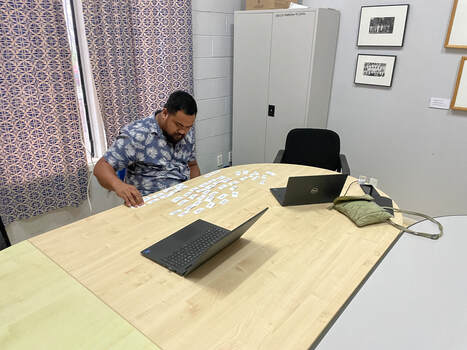
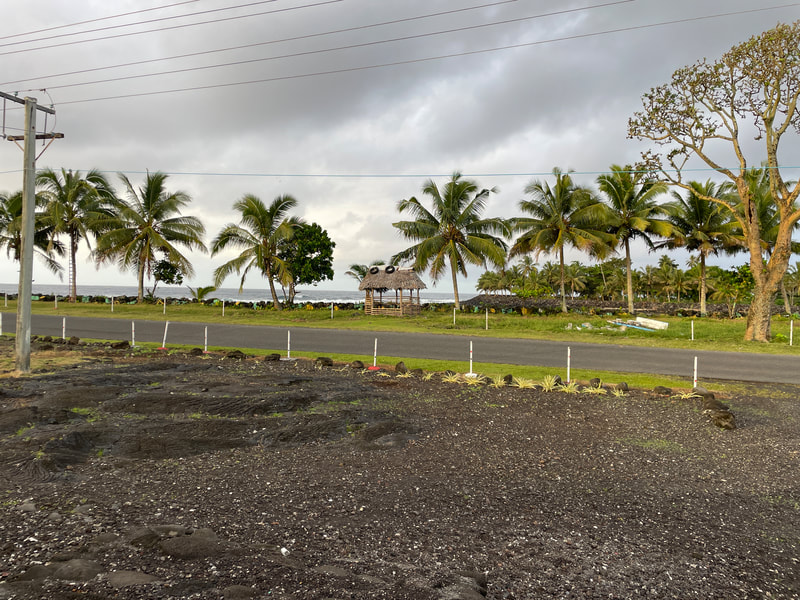
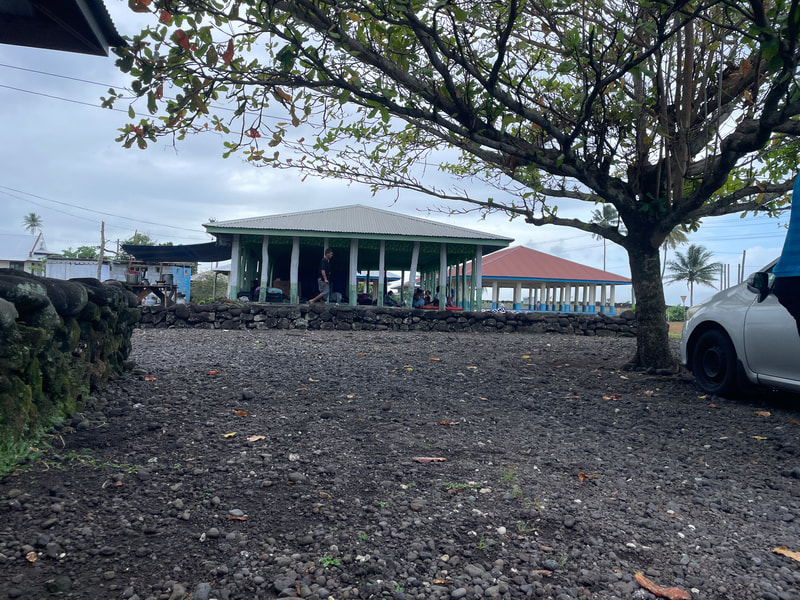
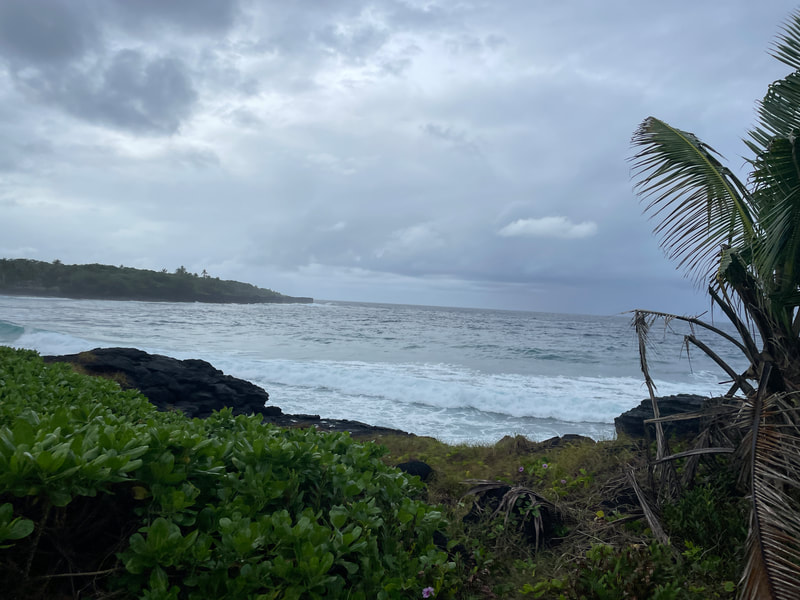
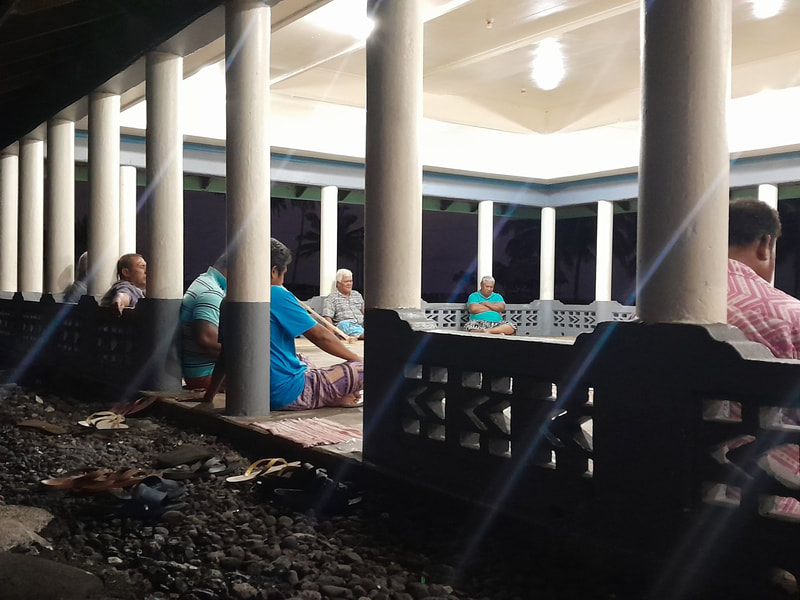
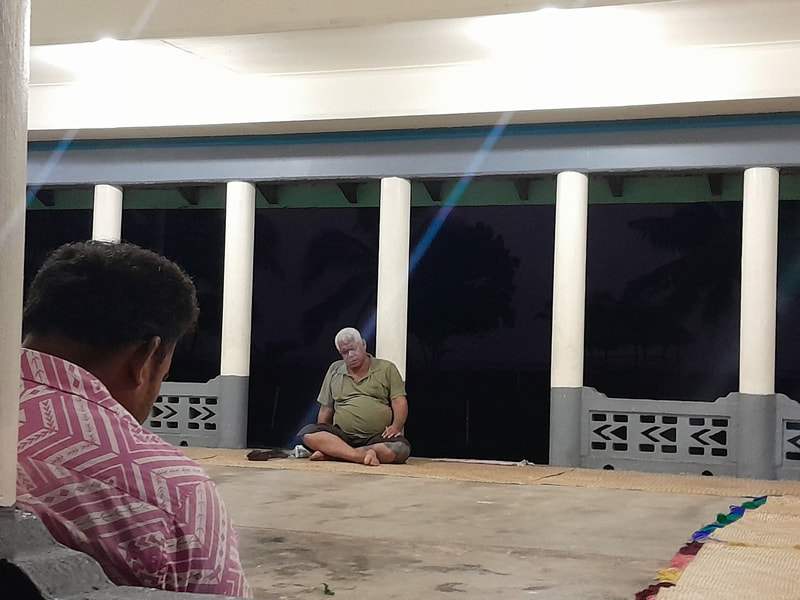
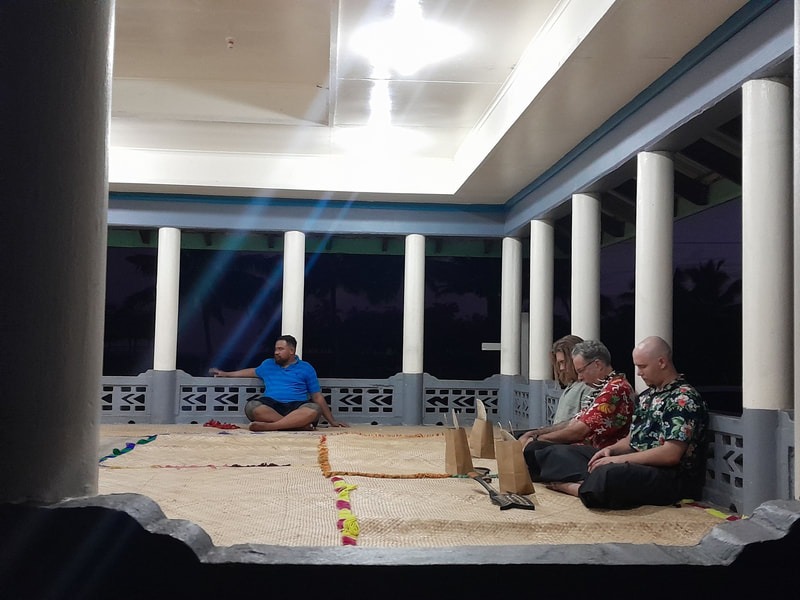
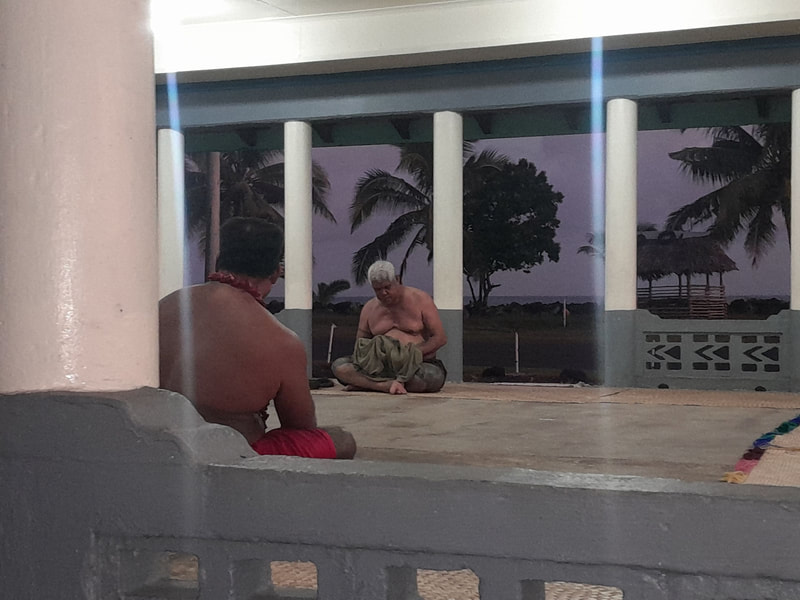
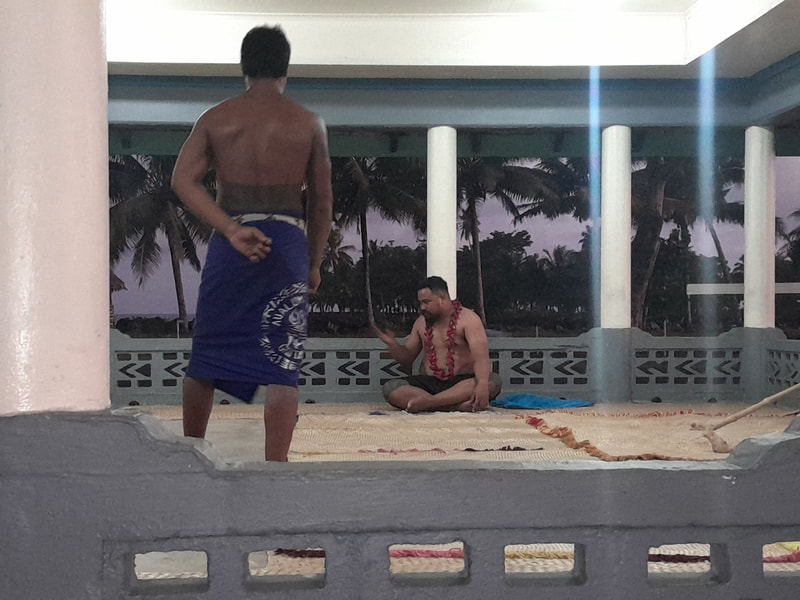
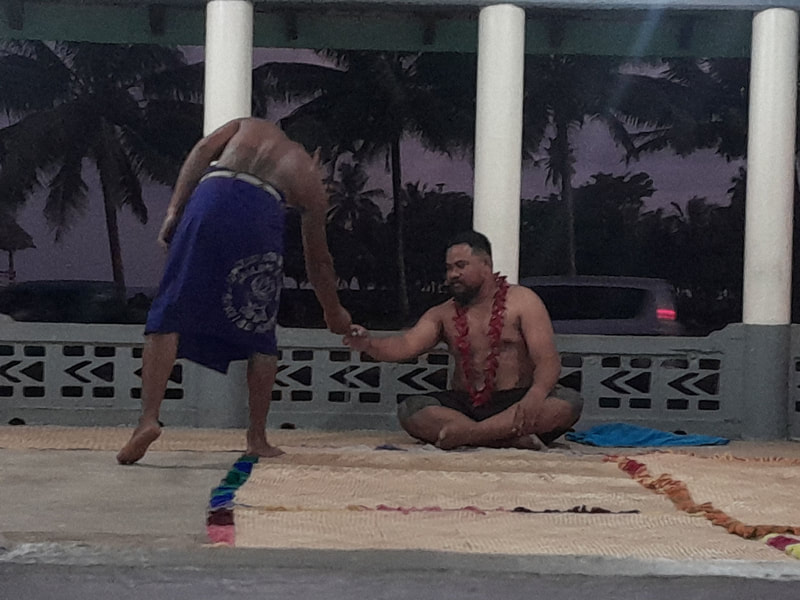
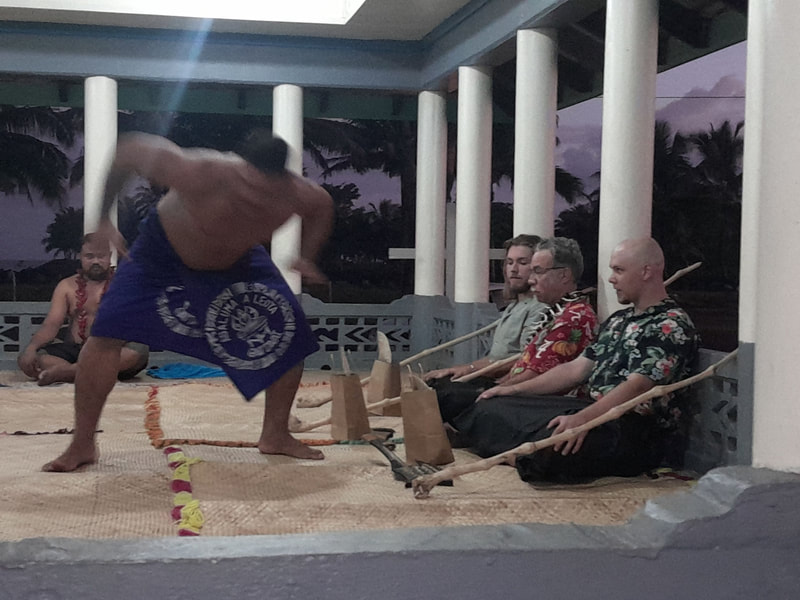
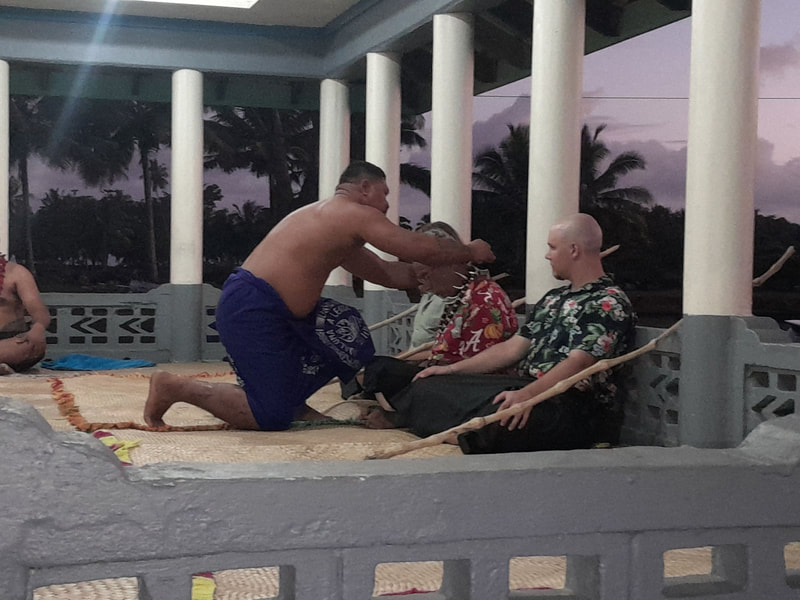
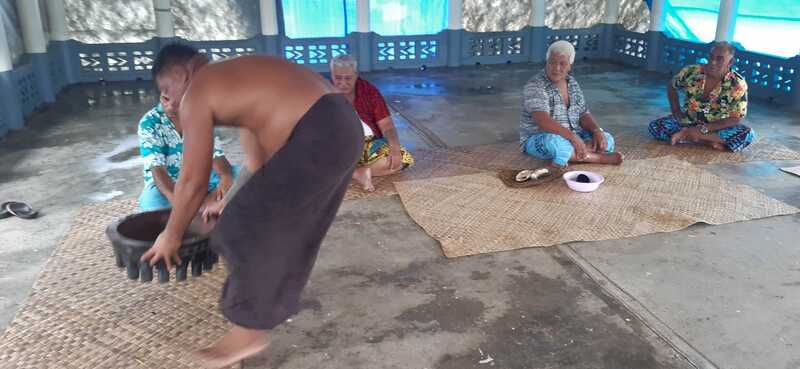
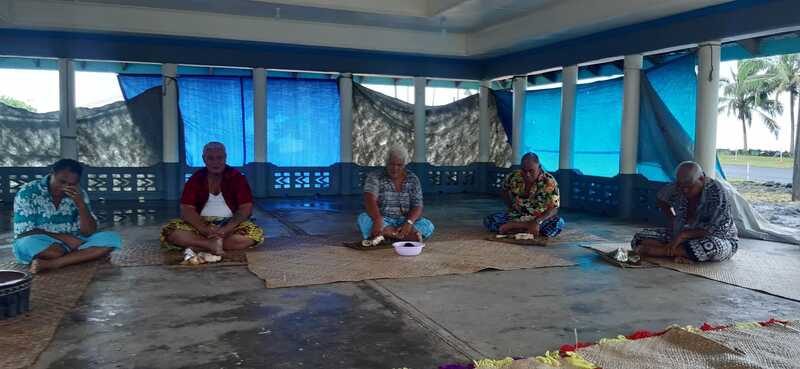
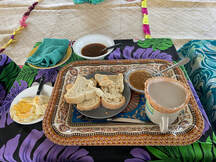
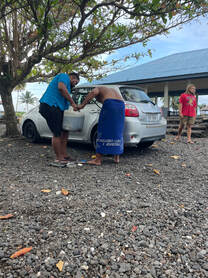
 RSS Feed
RSS Feed
